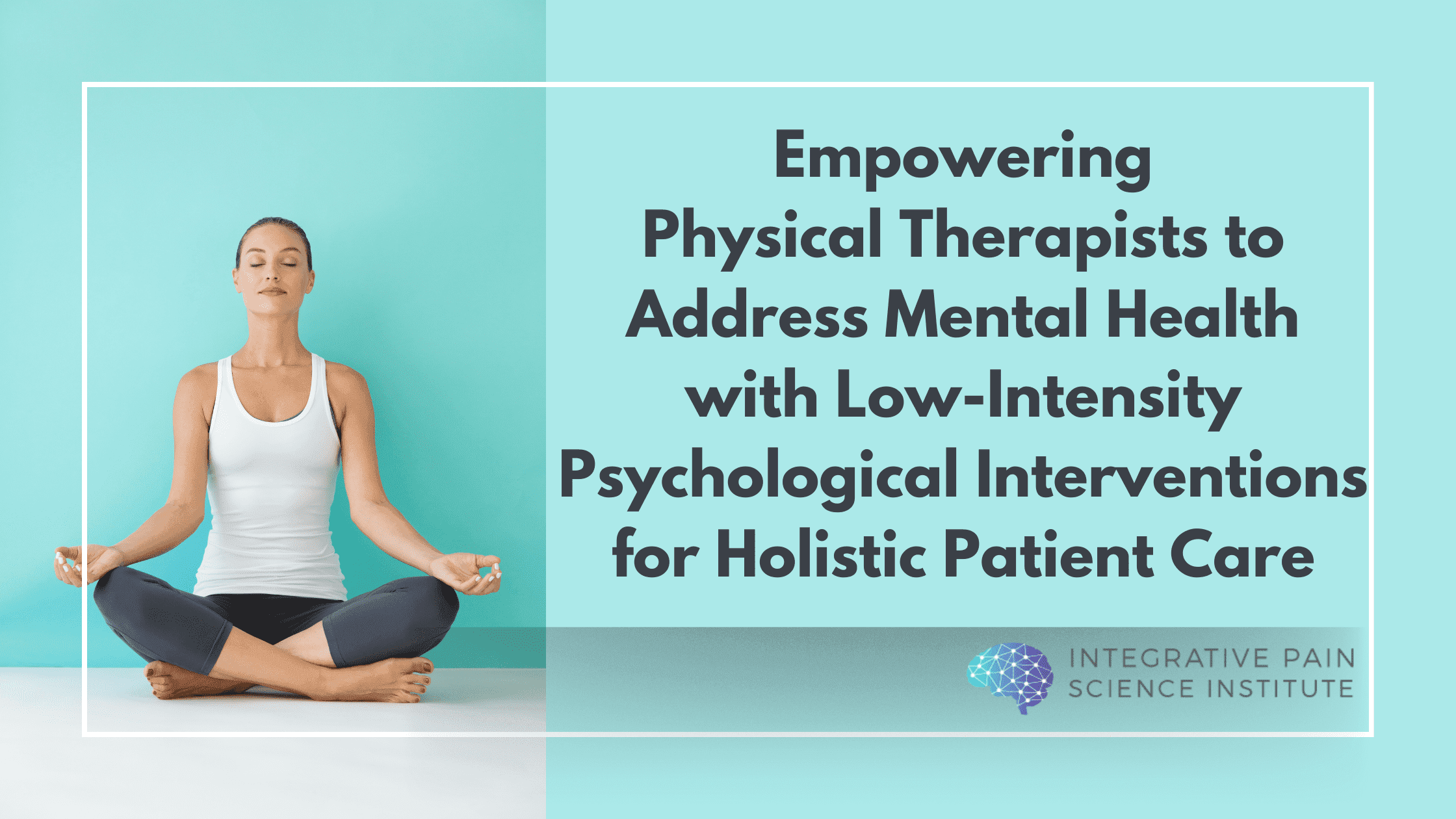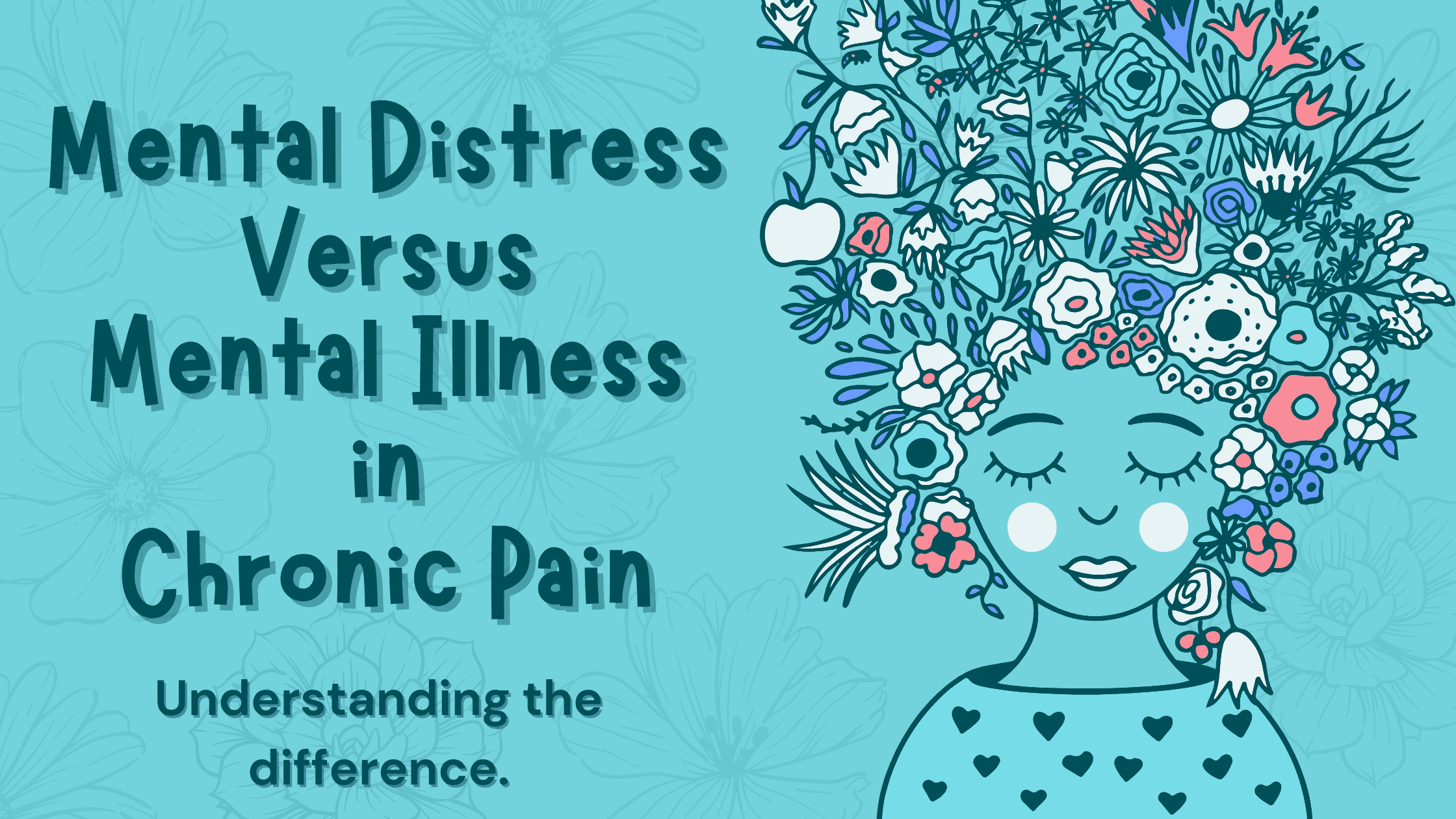People living with pain experience many types of thoughts, feelings, memories and physical sensations. They may influence a person to avoid, eliminate, struggle or make attempts to change them. People with pain reduce their activity, engage in excessive thoughts about pain, and ruminate about the cause of pain. The ever-expanding behaviors that develop in an effort to control pain squeezes out the joy and human potential. This persistent focus on pain control narrows life and is harmful to wellbeing. Trying to persistently rid oneself of painful sensations, unwanted emotions, distressing memories or unpleasant thoughts leads one away from their personally chosen values—the activities that are desired and meaningful.

A modern exploration of human suffering suggests chronic pain isn’t the enemy and that it doesn’t need to be stopped, eliminated or controlled to live a rich, meaningful and active life. Rather than focusing on changing physical or psychological pain directly, mindfulness and acceptance-based approaches seek to change the function of those events and the individual’s relationship to them. Mindfulness and Acceptance and Commitment Therapy informs us that psychological suffering is often caused by the interaction between language and cognition and its influence on human behavior. These types of approaches target the underlying processes hypothesized to be involved in suffering, and its alleviation. While pain hurts, it is the psychological struggle with pain that causes humans to suffer. This approach to living with chronic pain is altogether different and refreshing. It helps patients accept all types of unwanted and unpleasant inner experiences.
ACT is a time-tested, science-backed approach that has helped thousands of people with a wide range of painful musculoskeletal conditions and mobility challenges. It can also help with stress, depression, anxiety, trauma and addiction. There is hope in the ACT approach. The aim of ACT and mindfulness is to help you live a rich, meaningful and active life while handling pain and the suffering that often accompanies it. This is achieved in three ways.

First, ACT helps you develop an awareness of the things you struggle with. This may be physical pain, but there are other unwanted parts of your experience that can influence your thoughts and emotions. Even the treatments prescribed for pain can contribute to the struggle. ACT helps you notice what’s workable and helps you learn new skills to deal with painful thoughts, emotions and sensations. These skills will help you relate differently to pain, lessening the impact and influence pain has on your life.
Second, ACT helps you clarify and connect to what is most important and meaningful to you—these are your values. Values are like a compass that guide, inspire and motivate you to change by helping you rediscover what’s most important to you.
Finally, ACT helps you take action and propels you forward toward life versus away from life. Once you’ve reconnected with who and what is most important, values-guided action can help you do what it takes on days when the seas are calm, and on days when the storm clouds roll in and pain or discomfort show up. ACT helps you accept what’s out of your personal control and discover what’s in your control, so you can commit to taking actions that bring joy, meaning, and vitality to your life.

In many ways, ACT challenges conventional methods of pain management that focus on pain control and symptom reduction. At times, it may feel different than traditional cognitive behavioral therapy or the more recent pain education approaches. These therapies have been successful in many ways. Yet traditional cognitive behavioral approaches for pain report small benefits for disability, mood and catastrophic thinking in trials that compared cognitive behavioral therapy with no treatment, and long-term benefits often wane. Similarly, modern pain education approaches purport to assist patients to reconceptualize their pain away from a biomedical cause and towards a more biopsychosocial understanding. This approach aims to change or modify thoughts and beliefs about the cause of pain and has added to our cognitive methods of treating pain. However, varying degrees of reconceptualization exist with most patients showing only partial reconceptualization. Our ability to change pain-related thoughts and beliefs is often patchy, and people are left suffering.
ACT shows us that emotional responses such as fear, pain-related thoughts and memories from a person’s unique learning history cannot be changed nor completely eliminated. There is no delete button in the nervous system to erase what’s been learned. The strong possibility remains that some life event will occur in the future where these same feelings and thoughts yet again influence behavior. ACT does not attempt to change thoughts or beliefs and it is not pain relief focused. Although pain relief may occur, it is not an absolute prerequisite for vital living.
Dr. Tatta’s simple and effective pain assessment tools. Quickly and easily assess pain so you can develop actionable solutions in less time.
ACT has been shown to have positive effects on chronic pain, and meta-analyses show improvements in depression, anxiety, pain intensity, pain interference, physical functioning and quality of life. This has made it attractive for mental health and physical medicine professionals alike. A wide variety of health professionals can use ACT to inform their treatment of pain, and it cuts across specialties. This includes physical therapists, occupational therapists, nurses, physicians, health coaches, and of course, mental health professionals.
Treatments based on principles of cognitive behavioral therapy, including acceptance and commitment therapy, delivered by professionals other than psychologists continue to flourish and show promise. Within a self-management approach, physical therapists can weave principles of mindfulness and acceptance and commitment therapy into practice and effectively address the psychological distress associated with chronic pain.
The above was an excerpt from the book Radical Relief: A Guide to Overcome Chronic Pain Using Pain Science, Mindfulness, and Acceptance and Commitment Therapy by Joe Tatta, PT, DPT.



